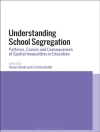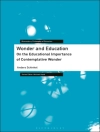The 1990s have seen a growing interest in the role of local ecological knowledge in the context of sustainable development, and particularly in providing a set of responses to which populations may resort in times of political, economic and environmental instability. The period 1996-2003 in island southeast Asia represents a critical test case for understanding how this might work. The key issues explored in this book are the creation, erosion and transmission of ecological knowledge, and hybridization between traditional and scientifically-based knowledge, amongst populations facing environmental stress (e.g. 1997 El Niño), political conflict and economic hazards. The book will also evaluate positive examples of how traditional knowledge has enabled local populations to cope with these kinds of insecurity.
Mục lục
List of Figures
List of Tables
Preface
List of Contributors
Chapter 1. Introduction
Roy Ellen
Chapter 2. Responses to Medium-term Stability in Climate: El Niño, Droughts and Coping Mechanisms of Foragers and Farmers in Borneo
Rajindra K. Puri
Chapter 3. Kasepuhan Rice Landrace Diversity, Risk Management and Agricultural Modernization
Rini Soemarwoto
Chapter 4. Responses to Environmental Stress in the Baduy Swidden System, South Banten, Java
Johan Iskandar
Chaptert 5. Innovation, ‘Hybrid’ Knowledge and the Conservation of Relict Rainforest in Upland Banten
Johan Iskandar and Roy Ellen
Chapter 6. A Comparison of Traditional and Innovative Subsistence Strategies on Buano during Periods of Socio-environmental Stress, 1980–2003
Hermien L. Soselisa
Chapter 7. A Tradition of Change in Minahasan Agricultural Strategies, North Sulawesi
Simon Platten
Chapter 8. Cycles of Politics and Cycles of Nature: Permanent Crisis in the Uplands of Palawan
Dario Novellino
Chapter 9. The Tobe and Tara Bandu: a Post-independence Renaissance of Historic Forest Regulation Authorities and Practices in Oecusse, East Timor
Laura S. Metzner Yoder
Chapter 10. Perceptions of Local Knowledge and Adaptation on Mount Merapi, Central Java
Michael R. Dove
Index
Giới thiệu về tác giả
Roy Ellen was educated at the London School of Economics and is Professor of Anthropology and Human Ecology at the University of Kent at Canterbury, where he has taught since 1973. His numerous and varied publications include Environment, Subsistence and System (Cambridge University Press, 1982), The Cultural Relations of Classification (Cambridge University Press, 1993), and most recently, The Categorical Impulse (Berghahn Books, 2005). He convenes the Kent Programme in Ethnobotany and has published widely on indigenous knowledge. In 2003 he was elected to a fellowship of the British Academy.












